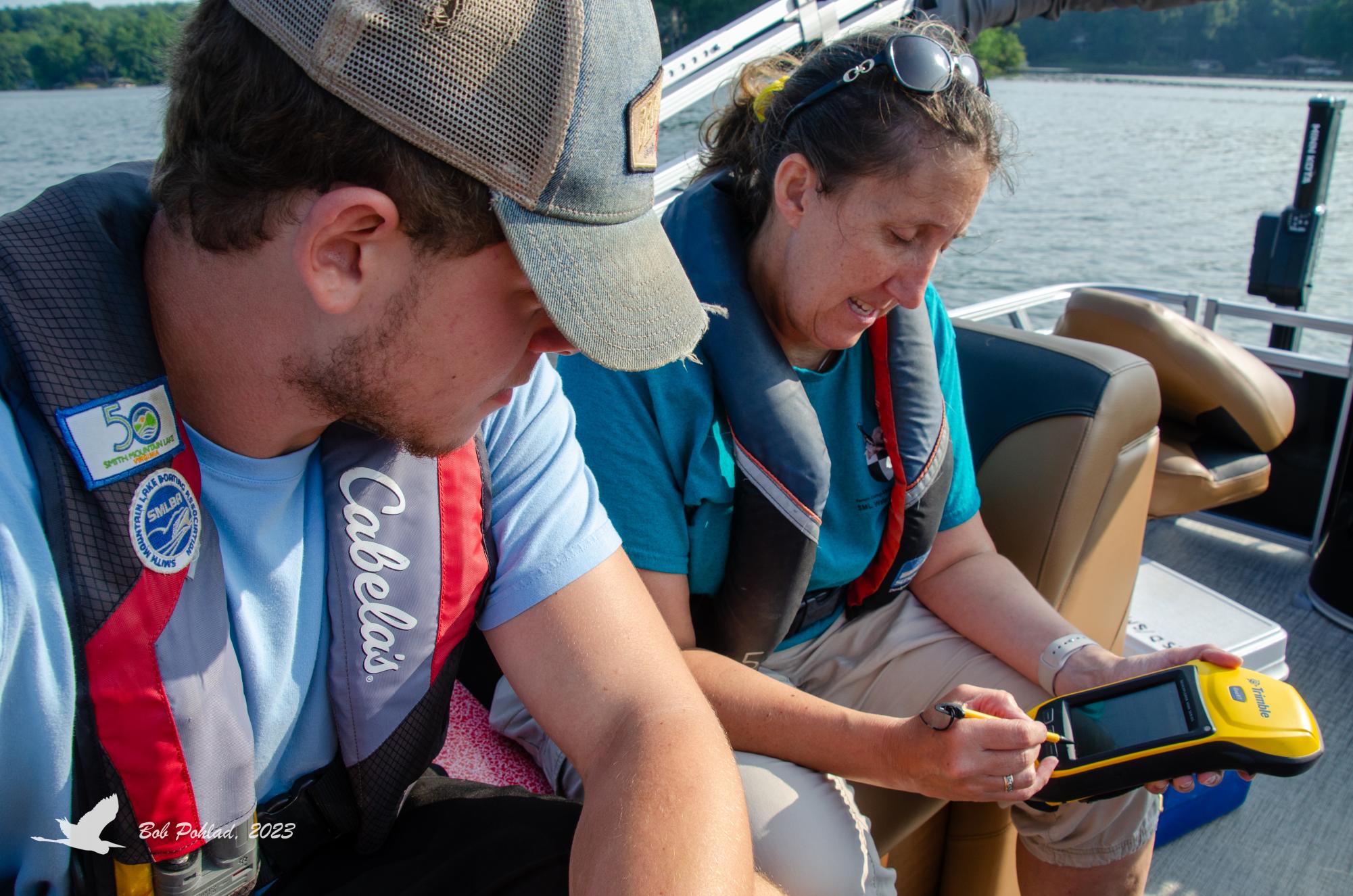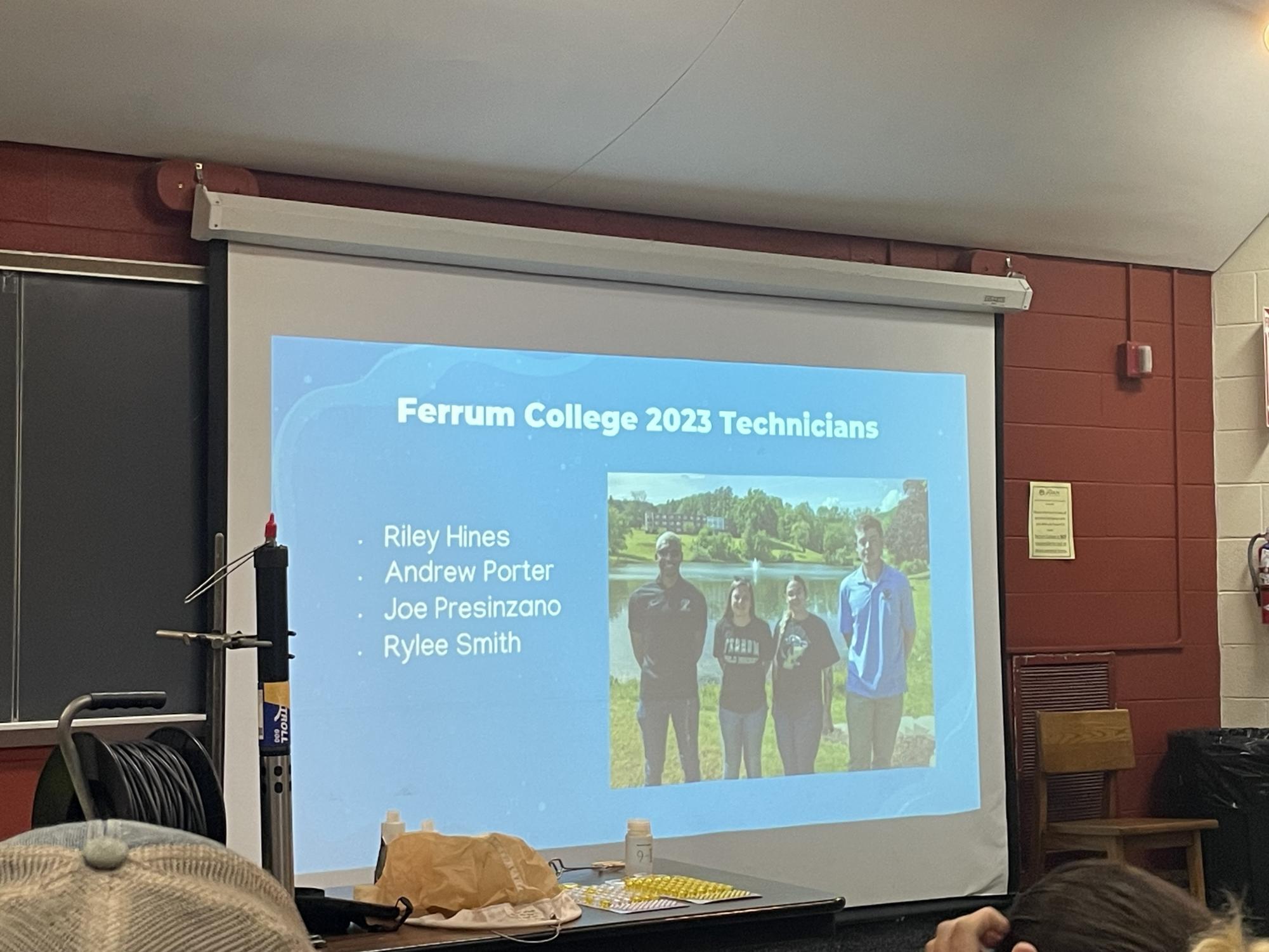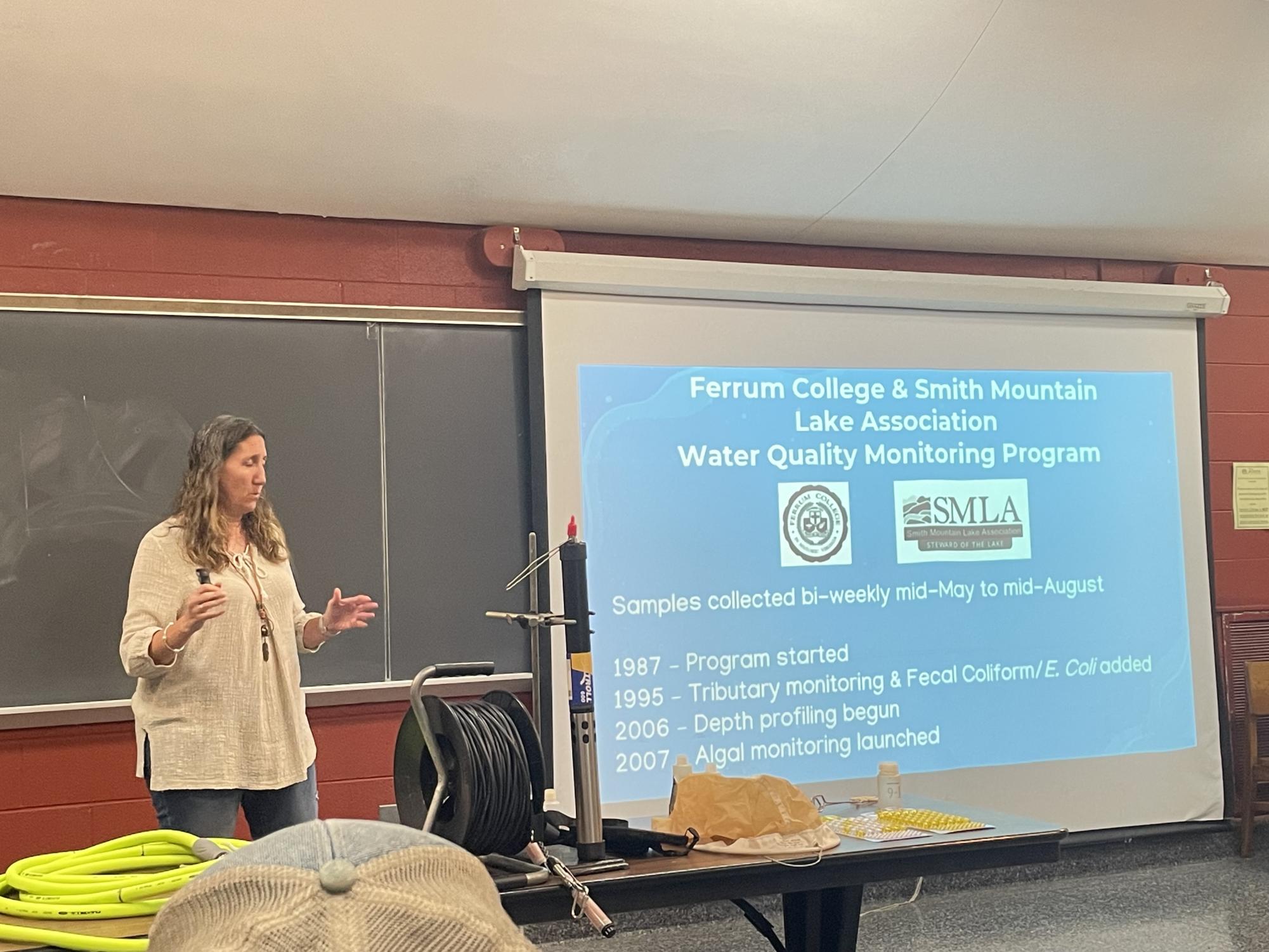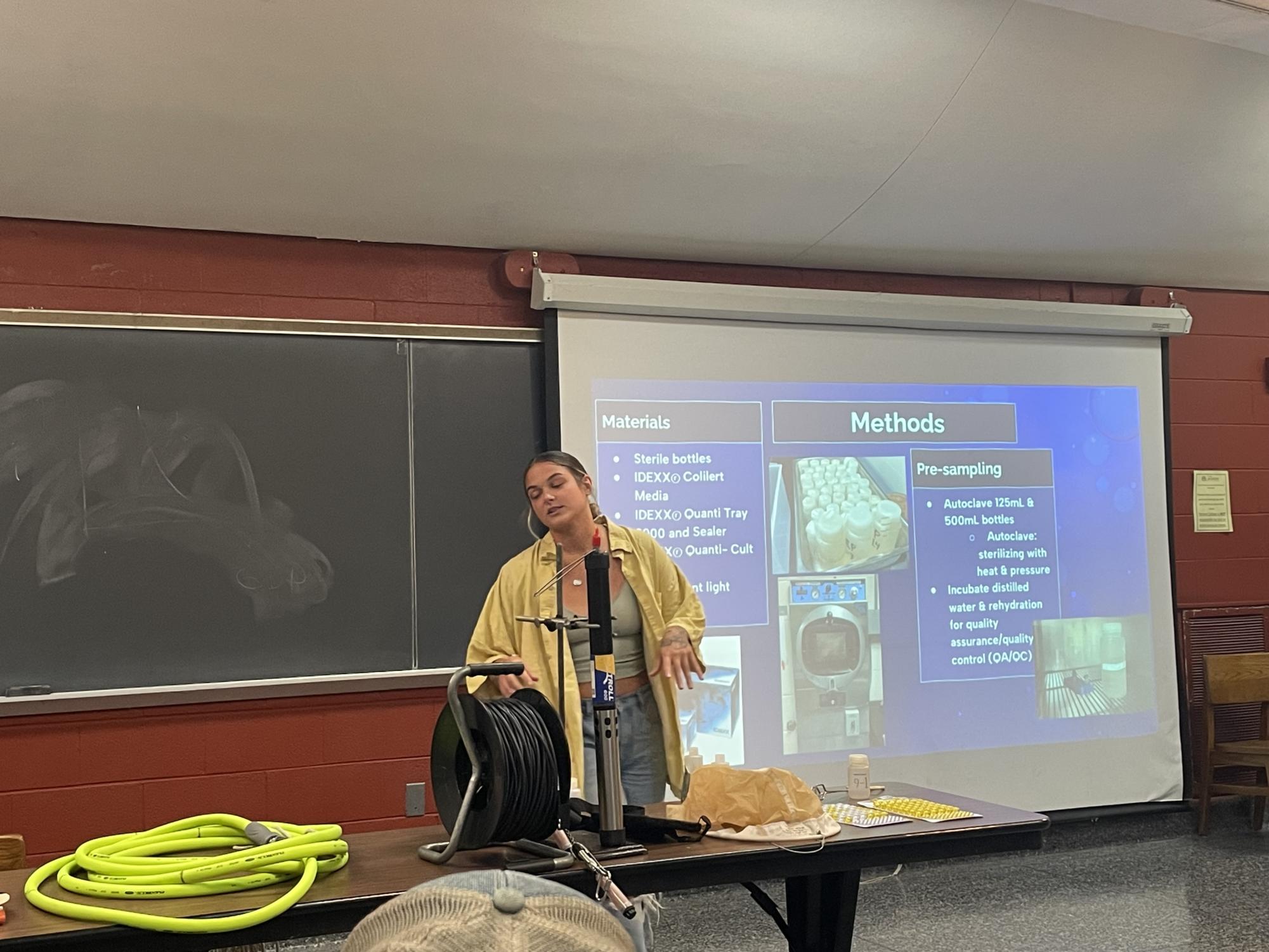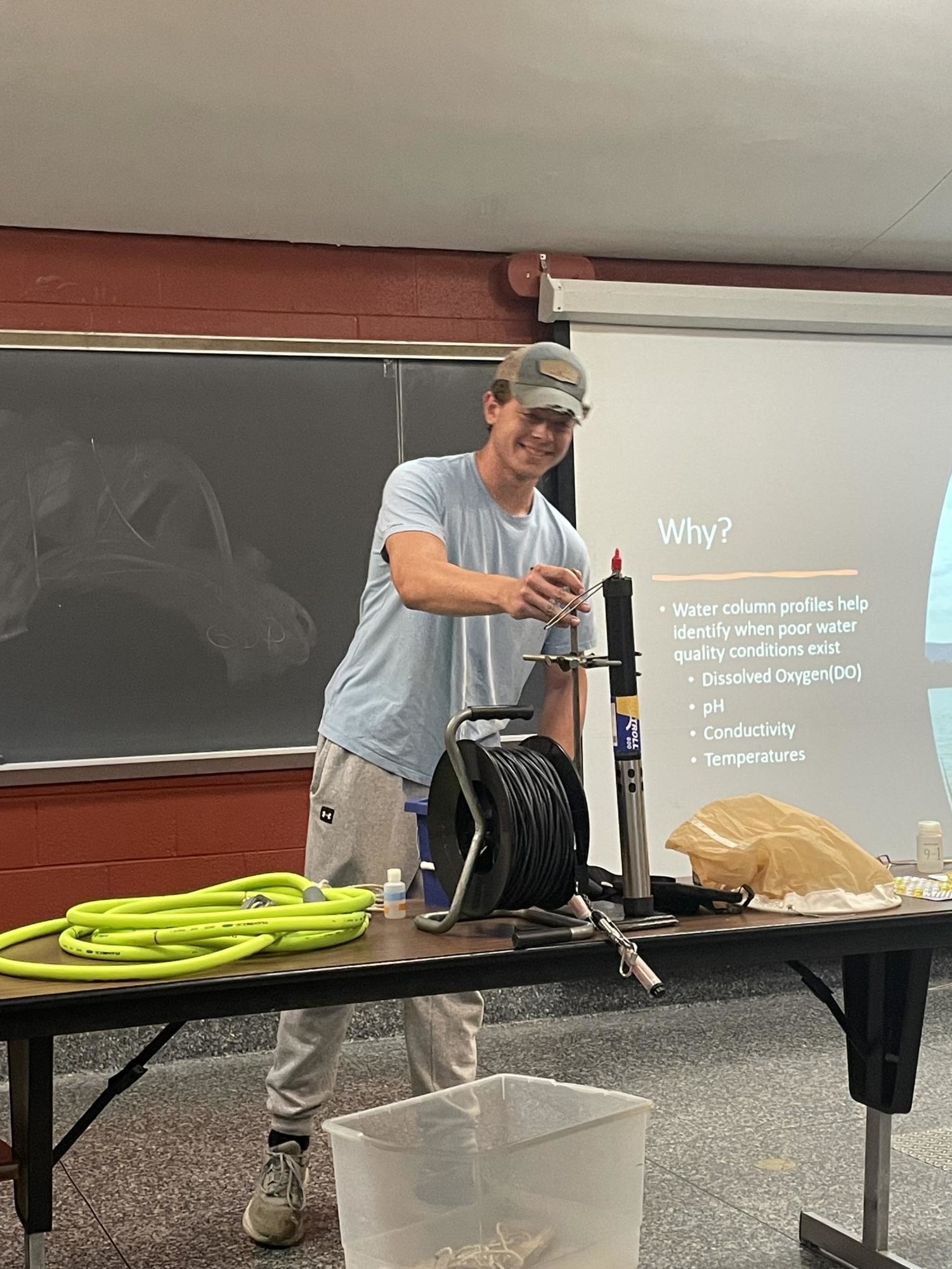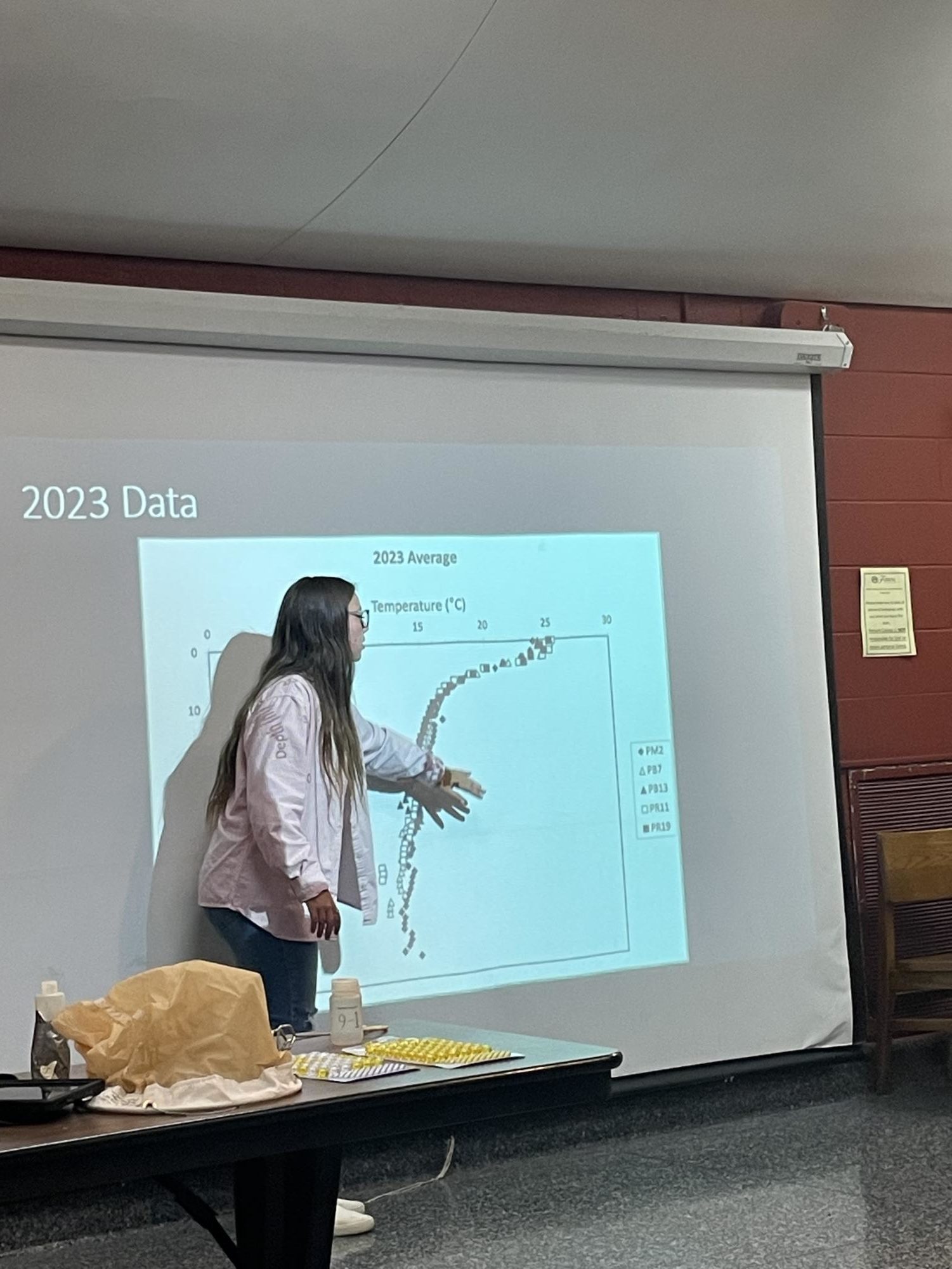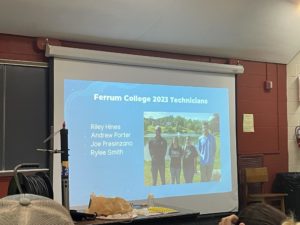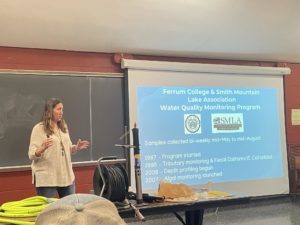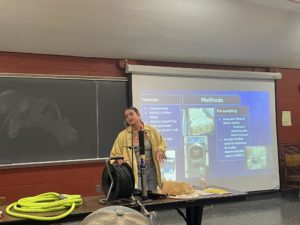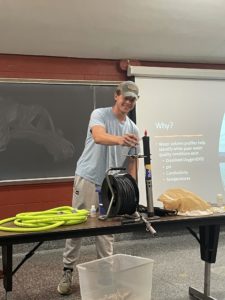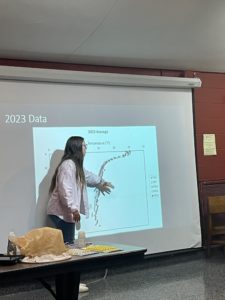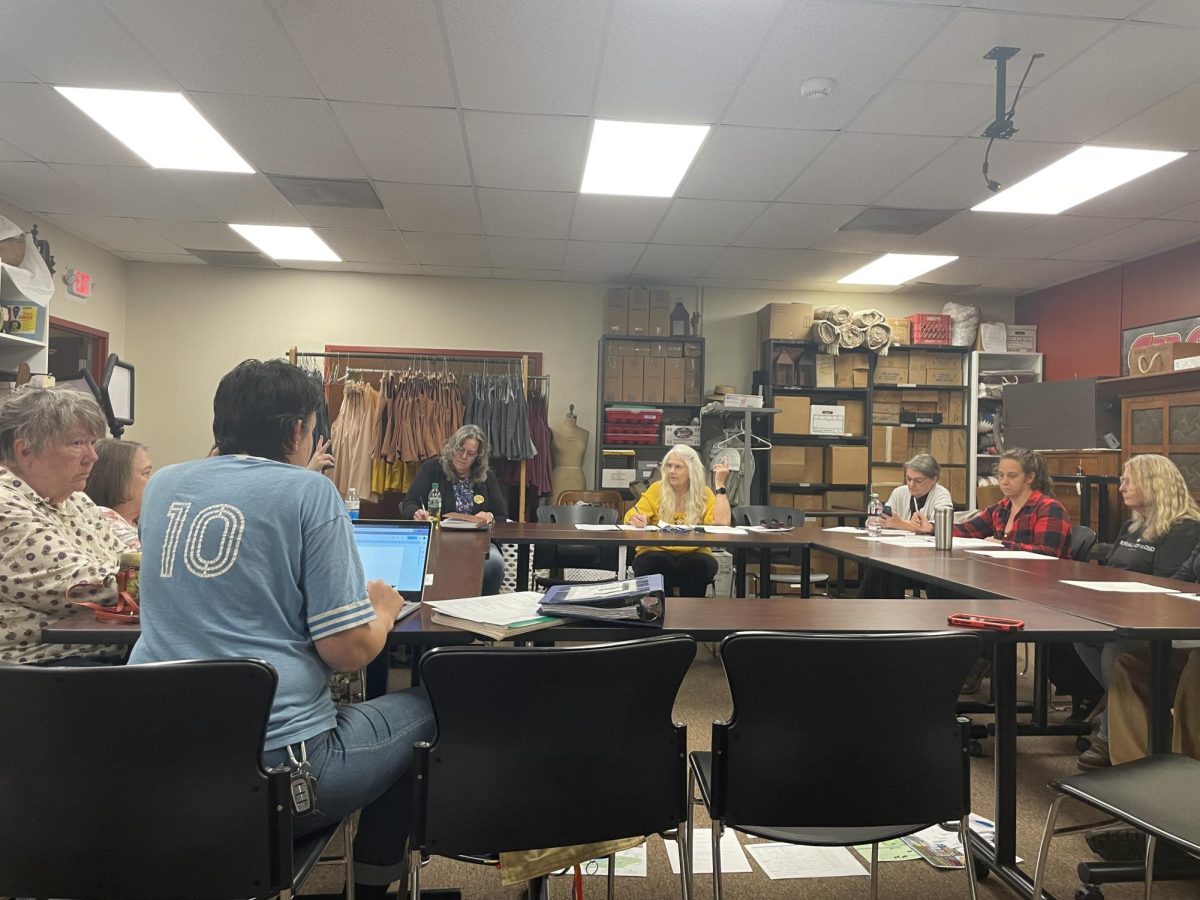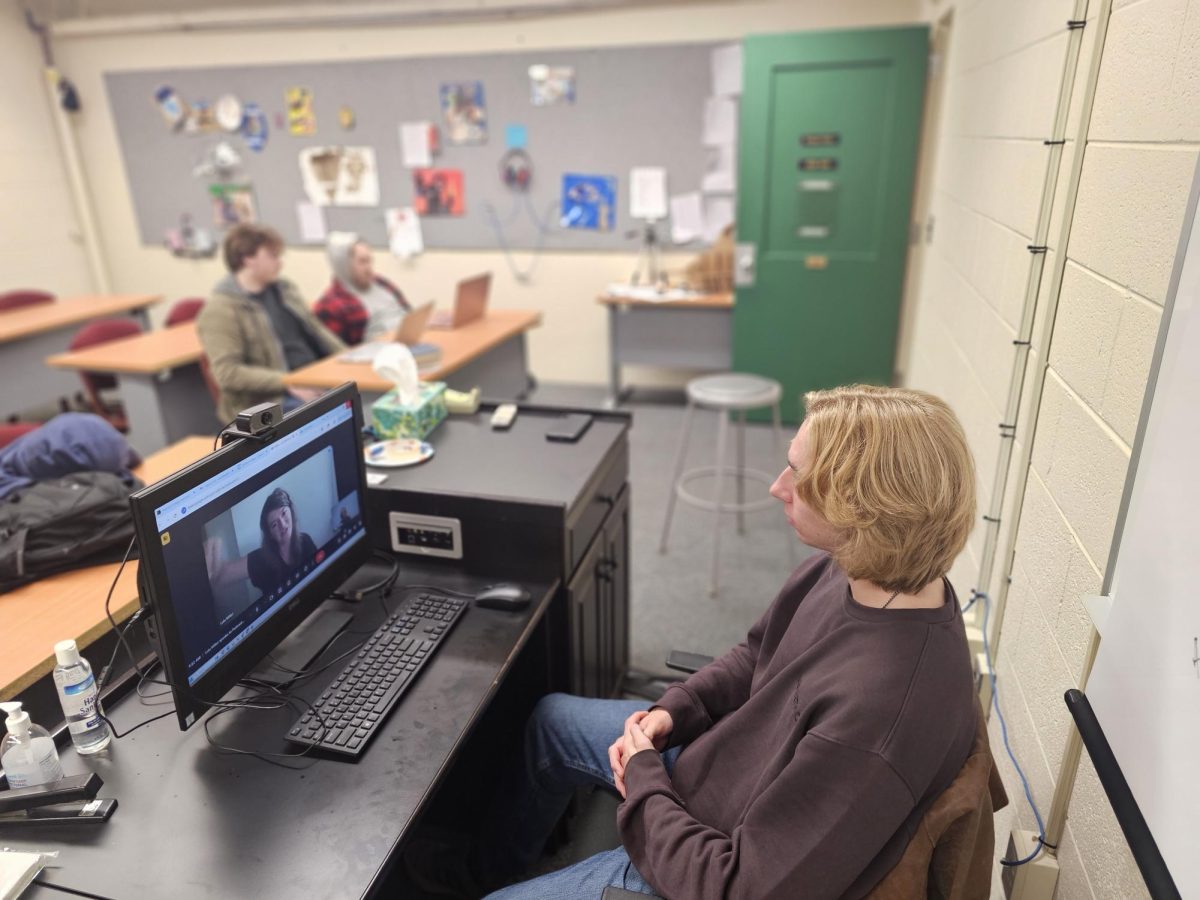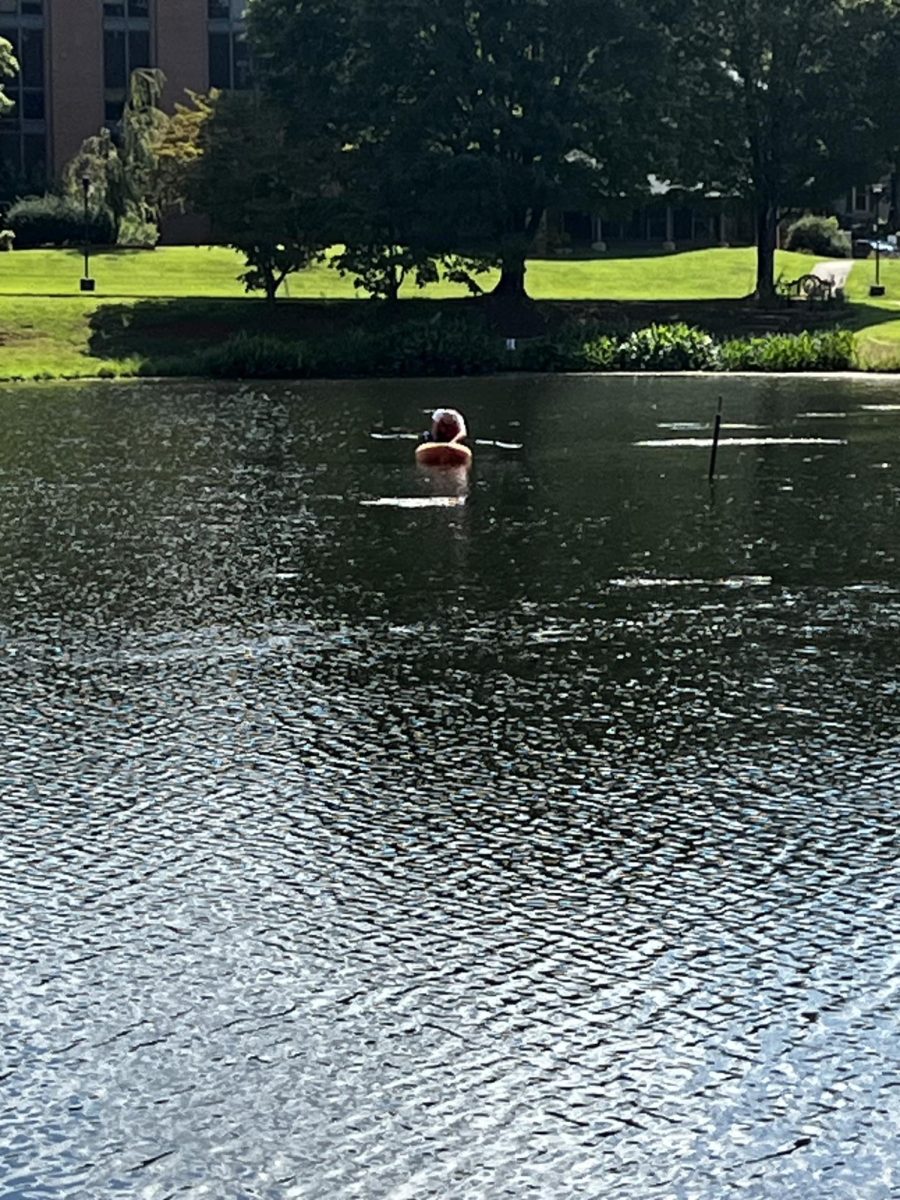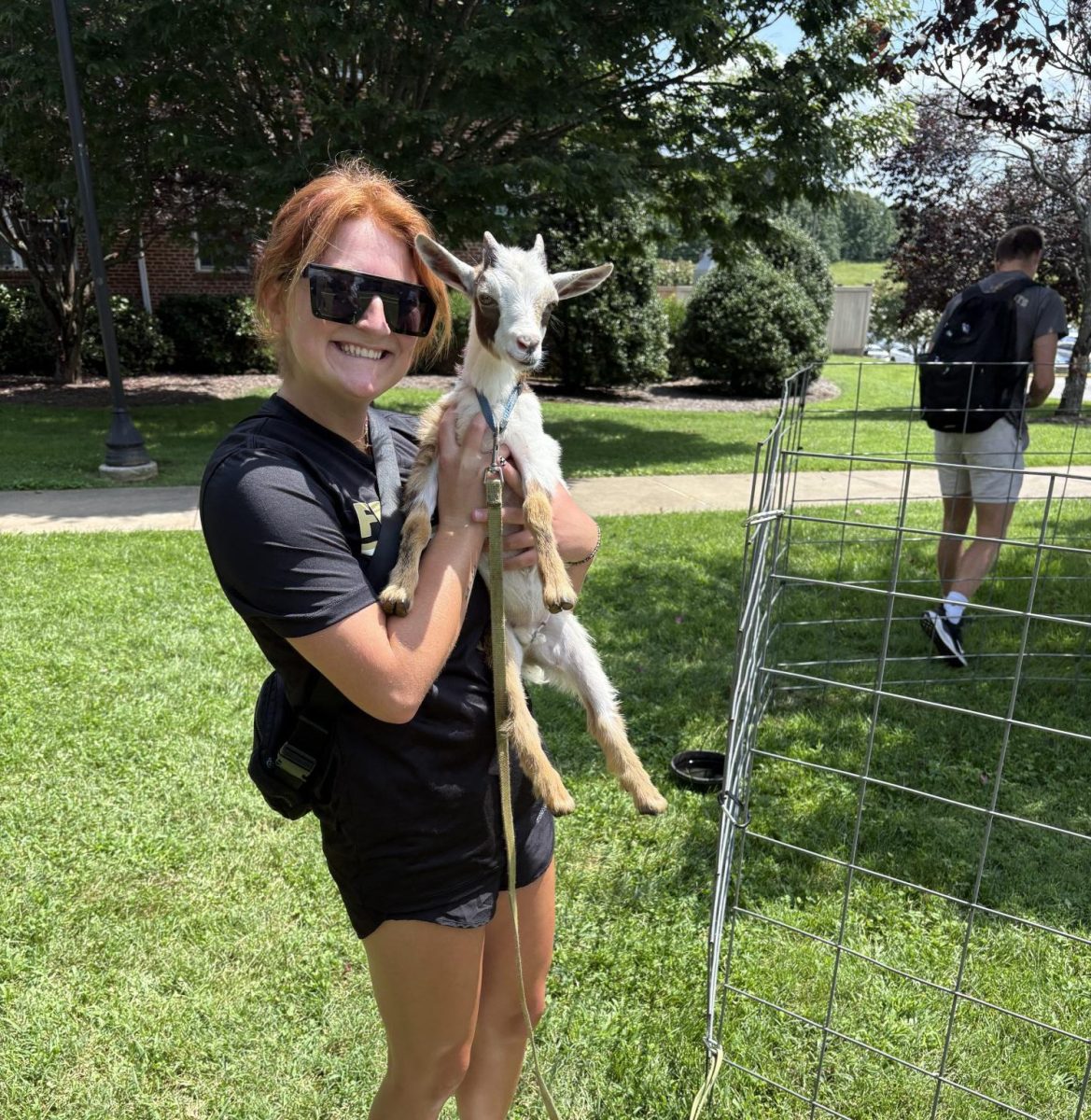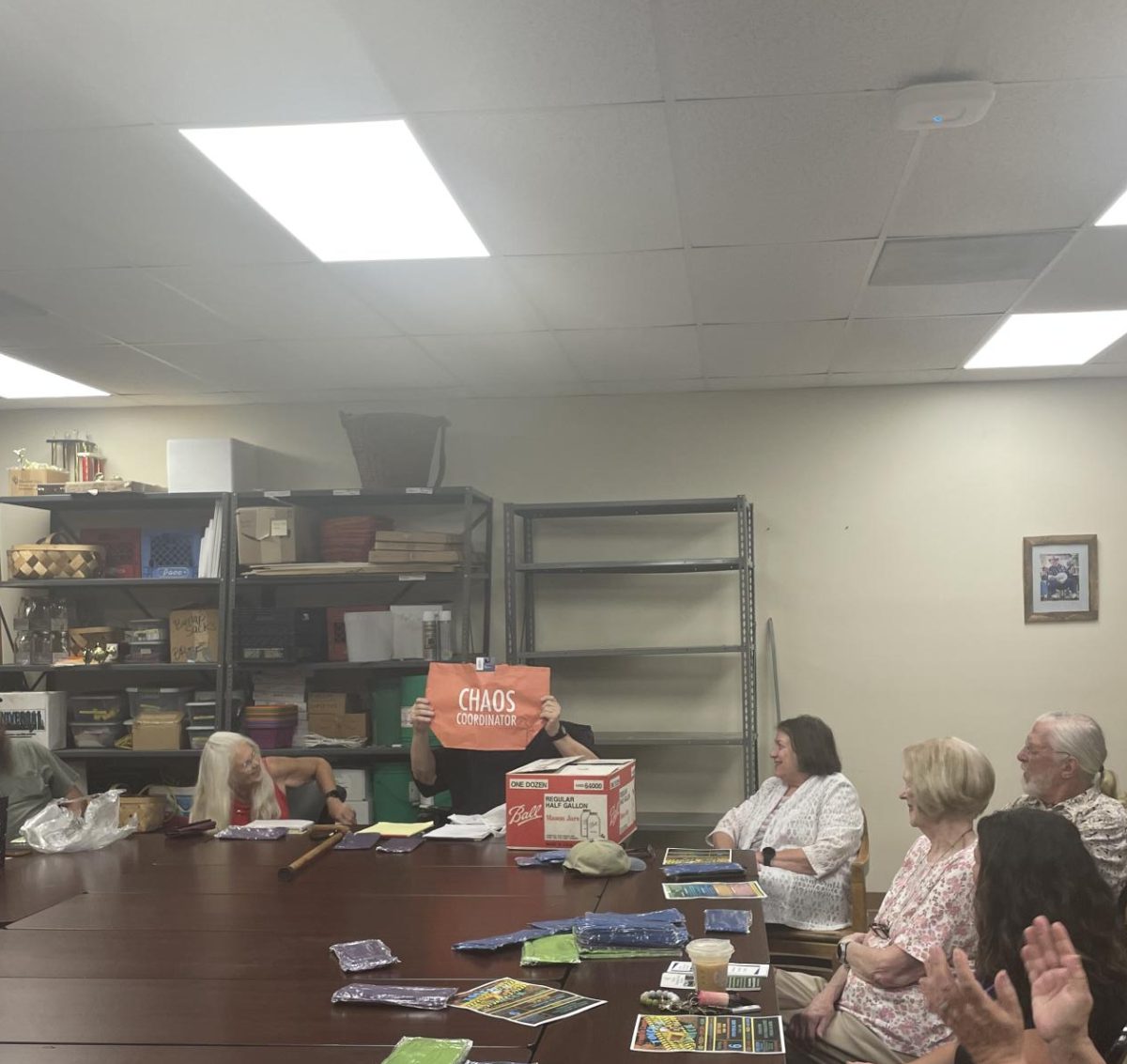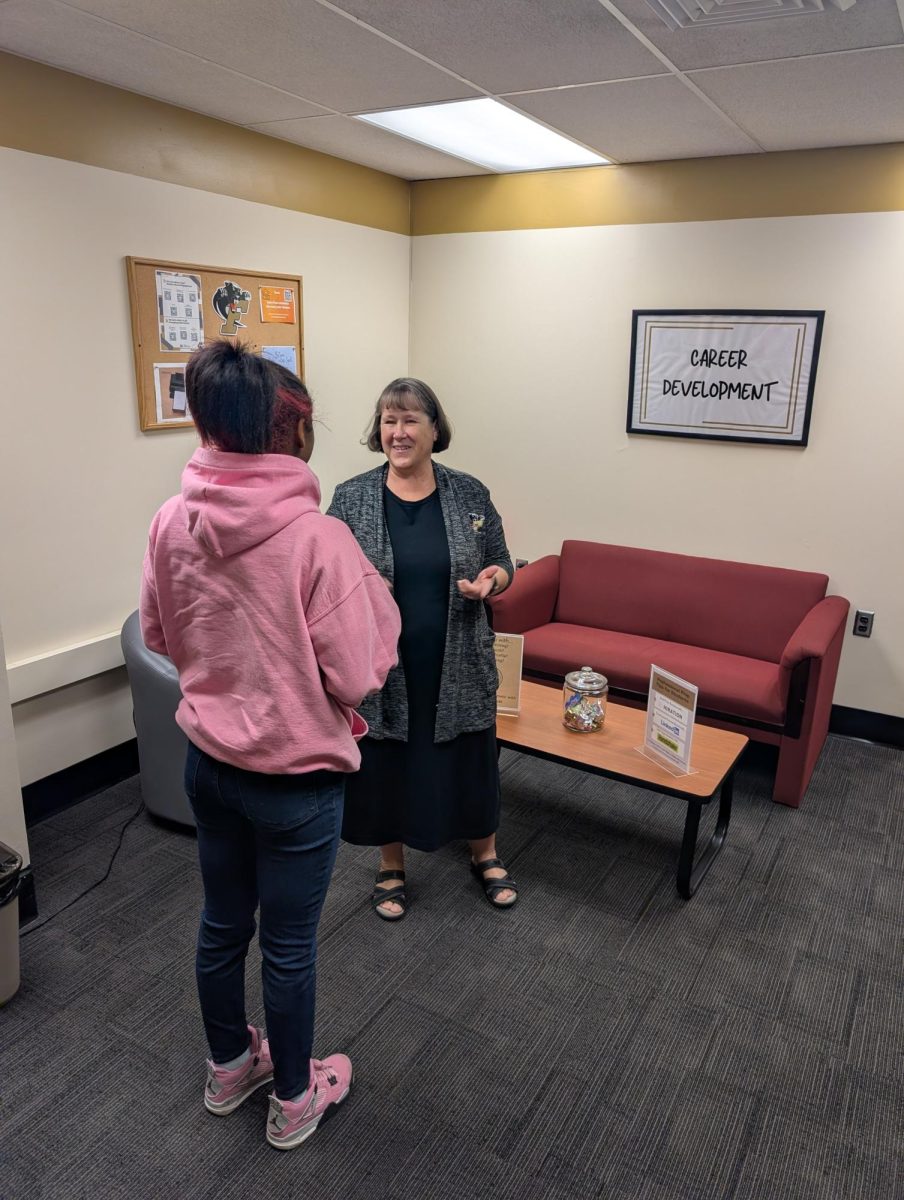Experiment.
Fail.
Learn.
Repeat.
Students are rocking the boat at Smith Mountain Lake–metaphorically that is.
The college’s and Smith Mountain Lake Association’s Water Quality Monitoring Program is a program that offers to students the opportunity to get research and real lab experience.
The program has been around since 1987, and this past summer, there were four students (one graduated) who worked in the program. This program is funded by the Smith Mountain Lake Association, and the Ferrum College lab is certified by the state, which means that it is audited every summer.
“The Auditors watch the students in the lab and in the field, and because of the protocols we teach them, our data is certified not just to be used by Virginia DEQ, but that data and that quality meets the standards and gets reported to the EPA,” Environmental Science Professor Delia Heck said.
More than lab experience, this is a program that pays students to be out on a lake all summer in a pontoon boat.
Students who are part of the program work with professors and a community of volunteers. Students who are interested in being part of the program can check out the program’s website at ferrumcollege.edu or Facebook page. Anyone can apply, not just science majors, as long as the person has taken at least one biology class.
Heck said that students will be chosen by the end of this semester so they can have enough time to tell their parents about their summer plans.
“We have a very fancy, cost over $80,000, a pontoon boat that the EPA bought for us, so we ride in style and comfort,” Heck joked. “We are not suffering for science like we used to.”
Students apply for the program, and four are chosen yearly. This year, Riley Hines, junior; Andrew Porter, senior; Joe Presinzano, junior; and Rylee Smith, junior; are part of the research.
The Water Quality Monitoring Program’s goals are to monitor trophic status, monitor bacterial populations, monitor hazardous algae, involve citizen scientists and stakeholders in environmental protection, and preserve water quality.
On Sept. 15, Hines, Presinzano, and Smith presented the research they compiled. Porter graduated in the summer and could not be part of the presentation.
Samples were collected in and around Smith Mountain Lake, Roanoke River, Blackwater River, and Smith Mountain Dam, where the Blackwater and Roanoke Rivers merge.
They monitored turbidity with Secchi Disk readings and collected water samples for analysis in the campus lab. In the lab, items tested included: total phosphorus chlorophyll-a; Secchi Depth; Algal and Bacterial sampling; and Analysis Depth Profiles of dissolved oxygen, temperature, pH, and conductivity.
“We have four technicians, and Andrew Porter graduated this summer. The reason he cannot be here is because he got a job with a consulting firm that is working at a super fun site outside of Wilmington, (North) Carolina,” Heck continued. “He got the job with the degree he has and the skills he learned from this program.”
The students were challenged with everything they did, from the topics they had to research to collecting samples, because everything had to be sterilized before collecting to ensure the samples were not contaminated, which could throw off the results.
“I did total phosphorus, which let me tell you, I was not excited when Dr. Heck said, ‘Yep, you’re going phosphorus. It’s you.’–just because it is more chemistry-based, and I have not done much of that,” Hines joked.
The Water Quality Monitoring Program gives students a footing into the science research job pool, but it is also for the betterment of the surrounding lakes. The program helps the community by monitoring the water for the aquatic life and to make sure that the lake water is safe to use and for swimming.
“Over the summer, one of the things I was in charge of was the bacterial samplings and search for the coliforms and E.coli. We test for E.coli because it is an indicator species that can tell us the conditions of the environment whether it is good or bad,” Smith explained.


